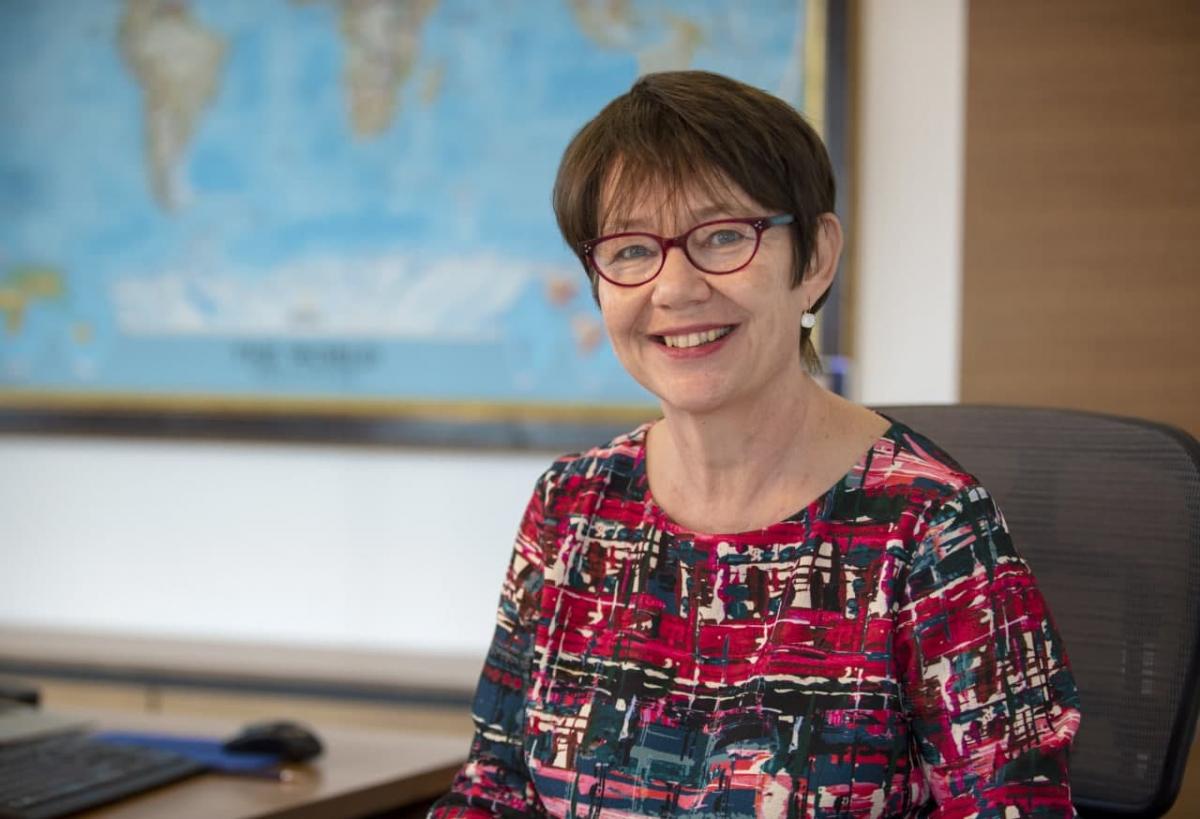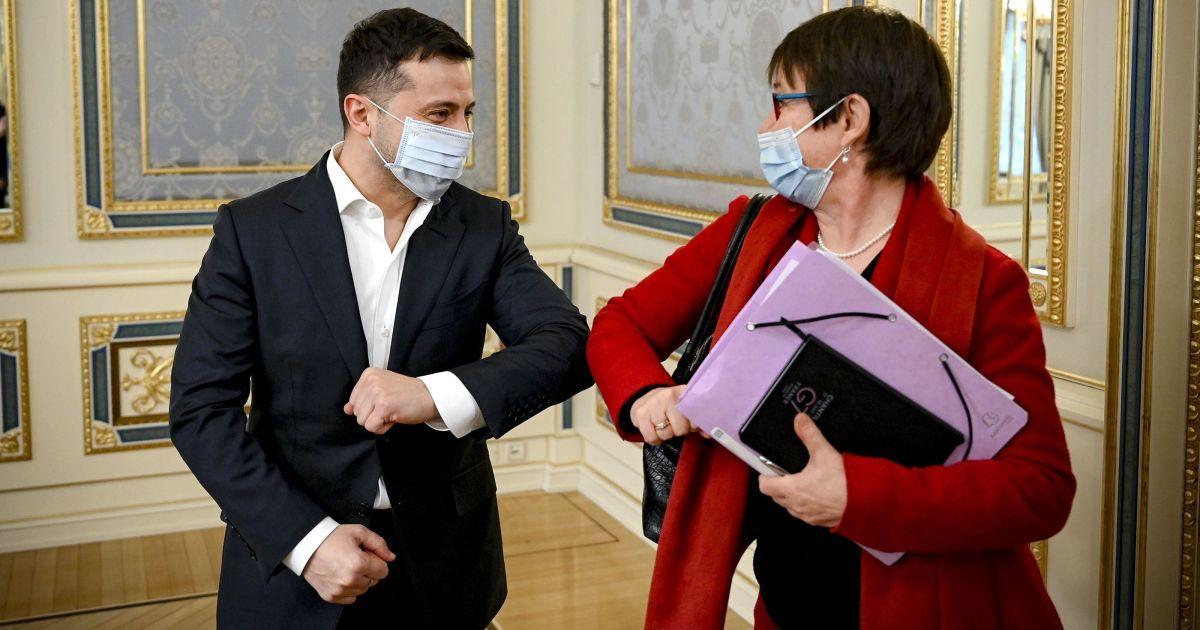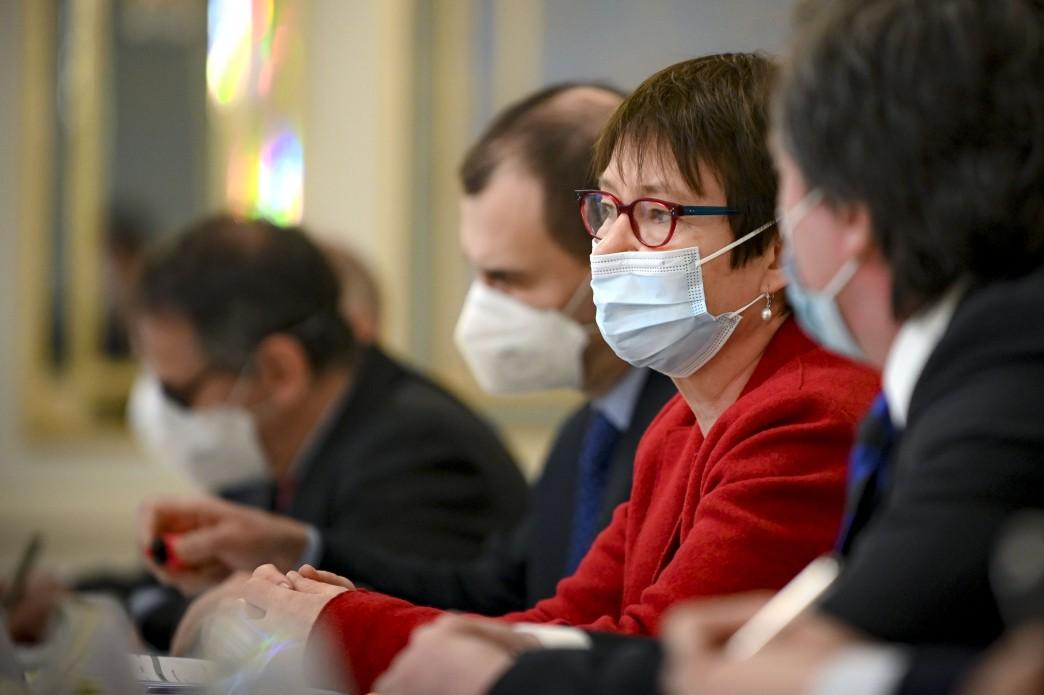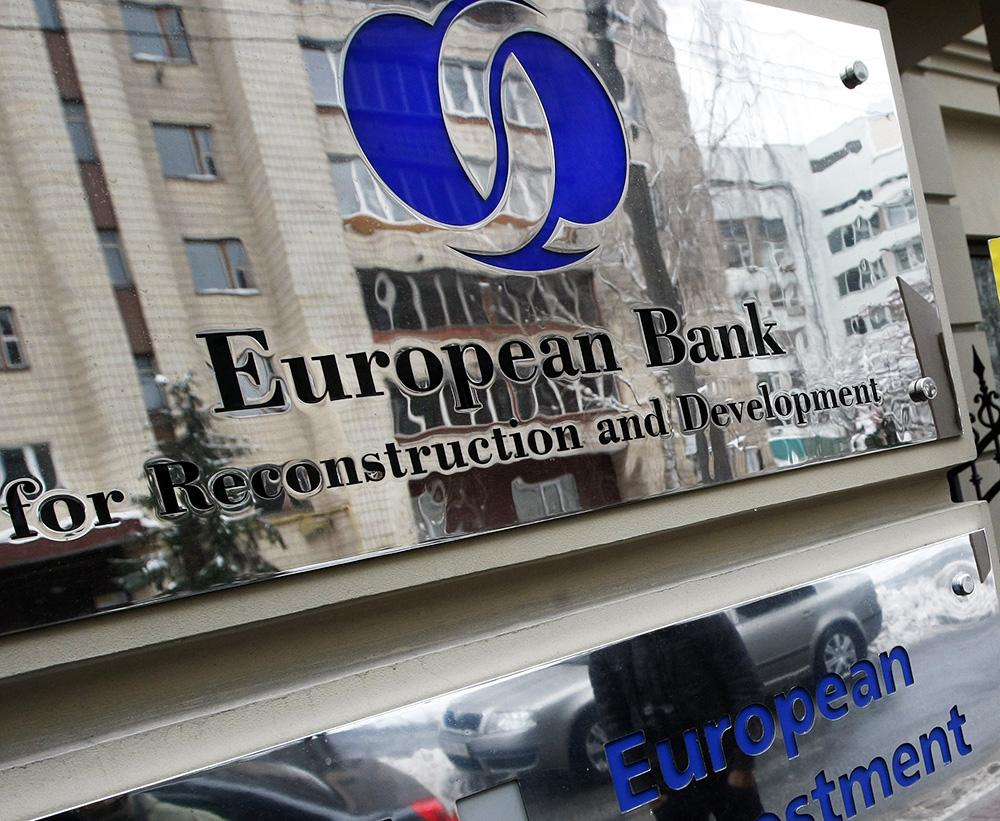
Odile Renaud-Basso: Ukraine recovery growth assessed at 3% of GDP in 2021, with exceptional level of uncertainties
President of the European Bank for Reconstruction and Development Odile Renaud-Basso, who began her first visit to our country on Monday, told UNIAN about the results she wants to achieve in Ukraine during her tenure and gave advice on how to double Ukraine's GDP and attract large amounts of foreign investment.
Odile Renaud-Basso became head of the European Bank for Reconstruction and Development last October, having previously served as Director-General of the French Treasury, where she dealt with European and international financial relations, trade policy, and financial regulation.
In this capacity, she has also served as Vice-President of the EU Economic and Financial Committee, Deputy Chairperson of the G7 and G20, Deputy Governor of the World Bank, the EBRD, and the African Development Bank.
During her first two-day official visit to Ukraine on March 22 and March 23, EBRD President Odile Renaud-Basso is scheduled to participate in high-level meetings, including with Ukrainian President Volodymyr Zelensky and Prime Minister Denys Shmyhal.
What is the purpose of your first official visit to Ukraine? Who do you plan to meet?
This is my first official in-person visit to a country where the EBRD invests and I am delighted to be in Ukraine on this occasion. I will be meeting President Volodymyr Zelensky, Prime Minister Denys Shmyhal as well as other government and business leaders.
I look forward to discussing reforms to unlock investment by the EBRD and other domestic and foreign investors as well as the post-Covid-19 recovery. These investments means more jobs and prosperity for the Ukrainian people and this is what the EBRD is aiming at.
I will also address the audience at the launch of the National Economic Strategy for Ukraine 2030. I am pleased to see that the strategy is in line with the EBRD’s overall priorities for the coming five years: the greening of the economy, the strengthening of inclusion and securing a digitalisation that creates opportunities for everyone.

Ukraine and the EBRD have been cooperating together for 28 years. What do you see as the EBRD's mission in Ukraine at the present stage?
The EBRD and Ukraine have been strong partners over almost three decades now.
Ukraine is a top three investment destination for the EBRD. In the past two years alone, the Bank has committed EUR 2 billion to the economy.
We provide a comprehensive support package for the country to assist its stabilisation, the anchoring of its reforms and sound, inclusive and sustainable growth.
Our investments focus on strengthening energy efficiency and energy security, unlocking agricultural and industrial potential, providing quality infrastructure and strengthening the financial sector. We combine investments with policy engagement in key areas such as administrative reform, transparent procurement and rule of law in order to overcome corruption.
Our work is underpinned by and supports Ukraine’s aspiration of European integration.
The EBRD is also playing a key role in the transformation of Chernobyl.
What results do you plan to achieve for Ukraine during your presidency in the EBRD, which began in October last year?
We are strongly committed to supporting Ukraine’s recovery from the Covid-19 pandemic. Just like in 2020, all EBRD investments in the country this year will be dedicated to helping the economy overcome the impact of the coronavirus and emerge from it stronger.
The Bank will channel much-needed financing in key sectors and aims to maintain its high level of investment.
We will also spare no effort in support of policies that promote the fight against corruption, good governance in state-owned enterprises, structural reforms and a transparent and predictable business environment. Much has been done already and reforms need to be pursued and strengthened.
The pandemic must not slow down the fight against corruption. Citizens as much as businesses need a judiciary that is transparent, efficient and can be trusted. The establishment of a level playing field in the economic sphere with no oligarchic influence is essential.
Are you satisfied with the results of the bank's work in this direction now?
We are working closely with the authorities to improve governance and support the fight against corruption. The EBRD firmly believes that progress in these areas will be rewarded with a so-called “governance dividend” and lift the growth potential of the economy. This is a long-term effort but this is a top demand by the Ukrainian people and rightly so.
For example, in 2020 we launched a joint initiative to improve corporate governance of state-owned enterprises, starting with a pilot programme to transform Ukravtodor, the state road agency. We are combining a EUR 450 million loan for the development of the national road infrastructure with an ambitious procurement reform programme, creating fully transparency and combatting corruption.
Last year we also provided a loan to UkrPoshta, the state post service, linked to measures advancing anti-corruption reform and enhancing good governance.
In fact, our financing for state-owned enterprises is always conditional on improvements in corporate governance. We are already working with Naftogaz, Ukrenergo and UkrPoshta, to strengthen the rules, practices and processes by which these companies are managed, enhancing their performance and accountability.

What are the results of cooperation between Ukraine and the EBRD last year? What measures/actions do you plan to implement in 2021?
In what has been a particularly tough year – in Ukraine, but also elsewhere – the EBRD continued providing much-needed financing. Defying the uncertainty of the pandemic, we helped businesses adapt and helped make sure that key investments both in the private and public sector were not disrupted by the crisis.
The Bank delivered a total of EUR 812 million in financing in 2020 which placed Ukraine among its top three recipients with Turkey and Egypt.
I am particularly proud that the EBRD has increased the volume of its investments in the Ukrainian corporate sector to a record level.
We will continue this work in 2021.
Among our top priorities is developing a comprehensive programme for state-owned enterprises and agencies to help fight corruption and reform procurement, following the pilot with Ukravtodor.
We call upon all relevant parties to quickly resolve the situation around renewables to unlock financing for more projects.
This year, Ukraine has adopted a long-term economic strategy until 2030, aiming to reduce the share of state-owned banks from 55 to 25%. Should the EBRD plan to invest in the capital of state-owned Ukrainian banks? If so, which banks?
We welcome and encourage the reduction of the government’s share in the banking sector via privatisation of state-owned banks. It is our intention to continue supporting the reform and transformation of the state-owned banks.
We work with Oschadbank on its comprehensive transformation and hope that this effort will result in a pre-privatisation investment in 2021.
What areas of Ukraine's economy do you consider the most promising for your bank's investment?
Many sectors in Ukraine have enormous potential: agriculture, energy, transport, information technology – to name just a few. But if you ask me where reforms can deliver the greatest gains this is clearly in the area of state-owned enterprises (SOEs).
In order to achieve healthy and fast economic development, there must be a radical reform of SOEs, including the state-owned banks.
The government recognises that the SOEs are not necessarily flexible and efficiently managed and is therefore committed to maximising their efficiency by improving governance and redefining the state’s involvement in their management.
We welcome that commitment and stand ready for joined efforts in this vital question for the Ukrainian economy.

What actions of the Ukrainian authorities would attract more foreign investment in our country?
A key priority for Ukraine is to restore confidence in economic institutions, investment climate and the rule of law.
The authorities need to push forward with the fight against corruption, judicial and public administration reforms and privatisation.
It is critical to preserve the independence of institutions such as the National Bank (NBU). It is vital for macroeconomic stability and access to external funding and investments.
What is the latest forecast of your bank for the development of the Ukrainian economy for 2021-2022?
Our economists are currently in the process of updating economic forecasts, but, in our last October forecast we assessed a recovery growth of 3 per cent of GDP in 2021, with an exceptional level of uncertainties though.
In the adopted economic strategy by 2030, Ukraine plans to double its GDP - from 150 to 300 billion dollars. Do you think this is realistic? And what steps would help us really achieve this figure?
Ukraine is an economy that needs to speed up its economic convergence with Central European peer countries. Doubling the size of GDP in the next ten years is a legitimate target that requires comprehensive policies to boost growth. There is a huge potential in Ukraine, especially in its people and its youth. But pursuing the reform agenda is key for the economic development. Structural weaknesses remain and weigh on the pace of economic growth while labour productivity remains below other countries in the region. Progress in key areas of governance would provide a level playing field for investors and entrepreneurs, which is crucial for unleashing the growth potential of the Ukrainian economy.
Does the state of relations between Ukraine and the IMF affect the cooperation between Ukraine and the EBRD? What can you advise the Ukrainian authorities to improve relations with the IMF?
In any country, and Ukraine is no exception, an IMF programme is an indicator of the commitment to the reform agenda and an anchor for these reforms. In the case of Ukraine, a successful cooperation with the IMF will mean access to financial markets, attractiveness for investors and overall macroeconomic stability. Although the IMF is providing budget support and the EBRD is focused on project finance, we are working very closely together.
How do you see Ukraine in the future in 10 years?
I hope that in 10 years’ time Ukraine will be country guided by the European Union values and standards, with a stronger rule of law, greater social cohesion and trust between citizens, greener economy and more gender and income equality.
We are living in very uncertain times. Long-term planning has become difficult. However, it is in times of uncertainty, when we – people and countries – need to anchor ourselves on things that matter most.
The focus should be on what we can control and on looking for opportunities, which emerge along with the crisis.
In my view, Ukraine should stay focused on the reform agenda and seize the opportunity to build a greener future. On green, it means defining a long-term path towards carbon neutrality, which could guide decisions in the coming years. The EBRD is ready to invest even more to green the economy, at all levels, especially in Ukrainian cities, to develop modern public transportation or waste management investments.
But the future is in your hands.
What results do you plan to achieve during your presidency for the whole European region?
My goal is for the EBRD to continue, in these uncertain times, to be a strong and reliable partner and ally to the countries where we invest.
I will work very hard to ensure that we preserve and accelerate transition in our countries of operations through the Covid-19 crisis and a robust, yet sound recovery.
Our focus is on greening the economies where we invest, strengthening economic inclusion and securing a digital transformation that creates opportunities for everyone.
Bohdan Slutsky, Pavlo Stepanets

